Nematodes
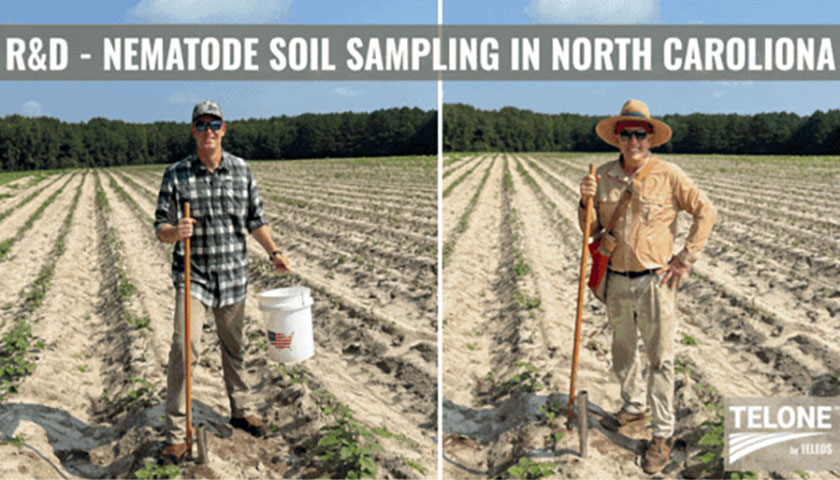
President John Godbehere assisted our Director of R&D Dr. Randy (RM) Huckaba, in collecting soil samples from three test plots in North Carolina. Telios proud to offer the world's best defense against nematodes. TELONE™ can help you manage destructive nematodes at www.teleosag.com.


Teleos Soil Nematode Research in NC
President John Godbehere assisted our Director of R&D Dr. Randy (RM) Huckaba, in collecting soil samples from three test plots in North Carolina. Telios proud to offer the world's best defense against nematodes. TELONE™ can help you manage destructive nematodes at www.teleosag.com.
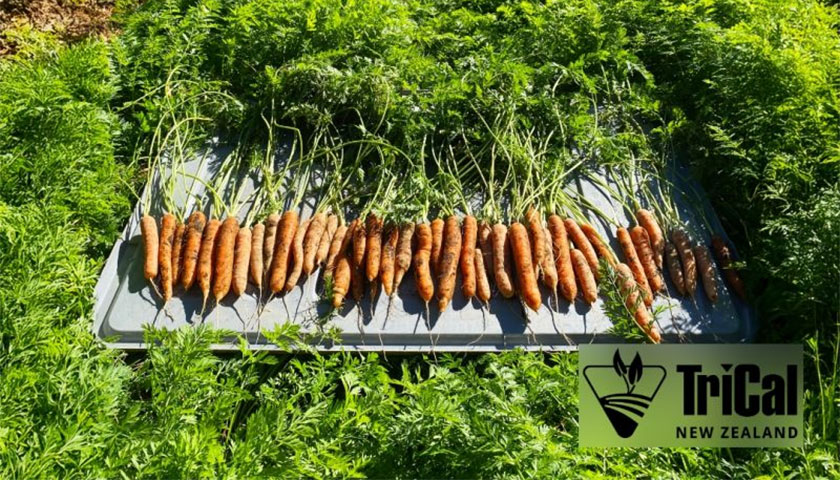
Carrot Fields in New Zealand with Tri-Form 60
A strong start paves the way for a fruitful harvest. This carrot field in New Zealand was treated with Tri-Form 60 in December to effectively manage nematodes and soil-borne fungi. Our goal is to improve soil quality for outstanding crop yields.
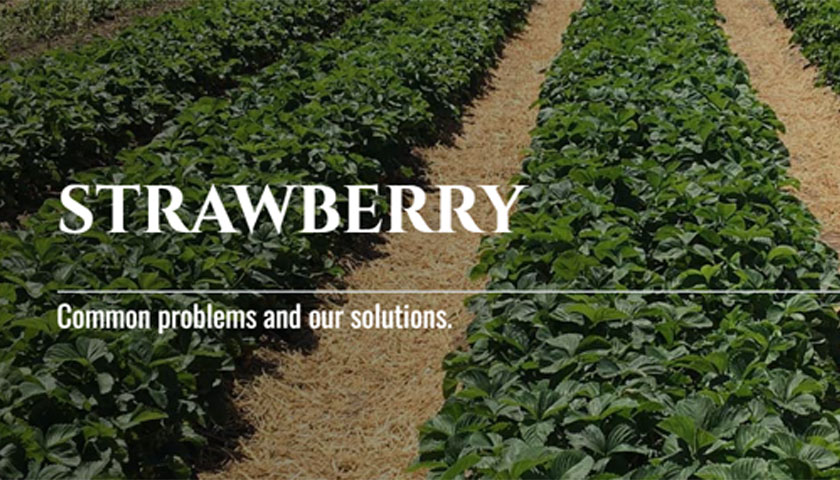
Teleos Ag's New Strawberry-Specific Crop Page
Strawberries are grown extensively in California, Florida, and North Carolina. Nematodes present significant challenges in these regions, impacting yields and fruit quality. The presence of foliar and northern root-knot nematodes can lead to ultimately lowering yields in strawberry crops.

Teleos Ag's New Potato-Specific Crop Page
Using TELONE™ by Teleos soil fumigant to prep the soil ahead of planting creates a zone of protection, allowing delicate roots to establish into healthy potatoes. Using TELONE™ in combination with chloropicrin also helps suppress many soilborne diseases that affect potatoes, including verticillium, common scab, rhizoctonia, fusarium, pythium, and more!
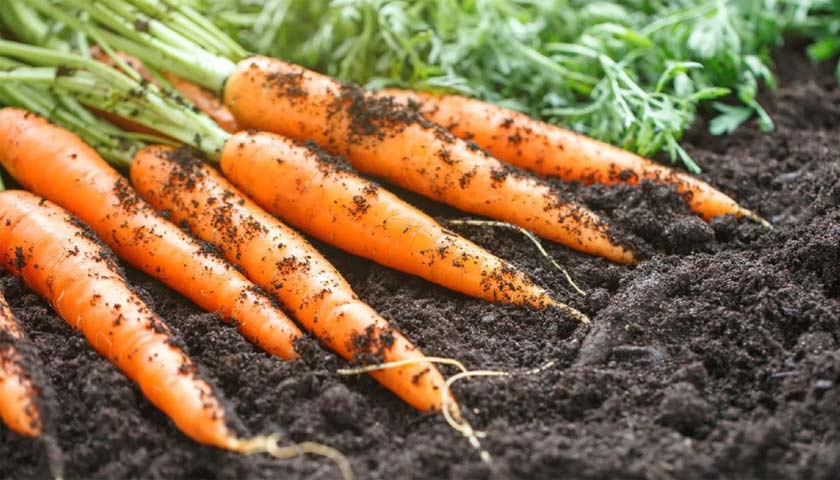
Tips to Control Nematodes in Carrot Production
Plant-parasitic nematodes are known as hidden enemies and restrain carrot production in the United States. In Georgia, carrots are among the most seriously affected vegetables due to heavy infestation of root-knot nematodes, causing especially severe problems in all carrot-growing areas.

Functional Sustainability: How Using TELONE™ Can Lower Water and Fertilizer Inputs
In modern agriculture, the efficient use of resources is paramount. Growers seek ways to optimize water and fertilizers while maintaining or enhancing crop yields. By applying TELONE™ before planting roots can develop without the hindrance of pests.
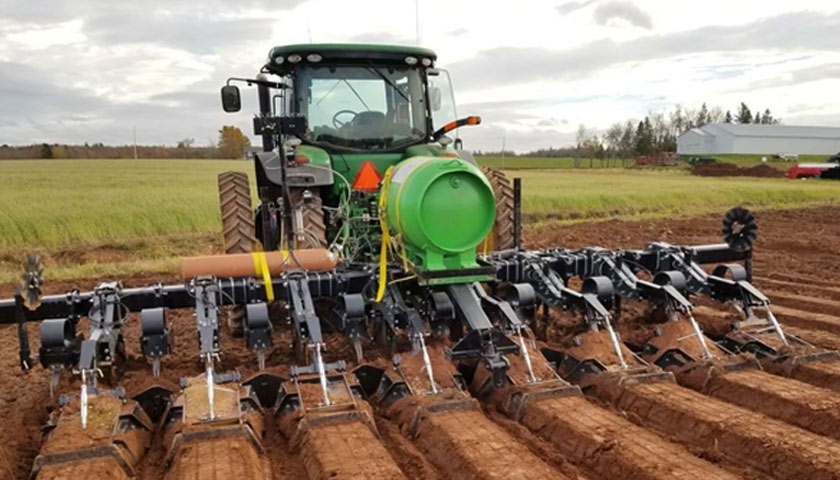
Preparing For Spring Telone™ Applications
As spring approaches, it’s essential to prepare fields for planting by effectively managing soil-borne pests, particularly nematodes. This blog post outlines steps to ensure successful fumigation, including soil sampling, using pre-application checklists, and monitoring soil moisture levels.
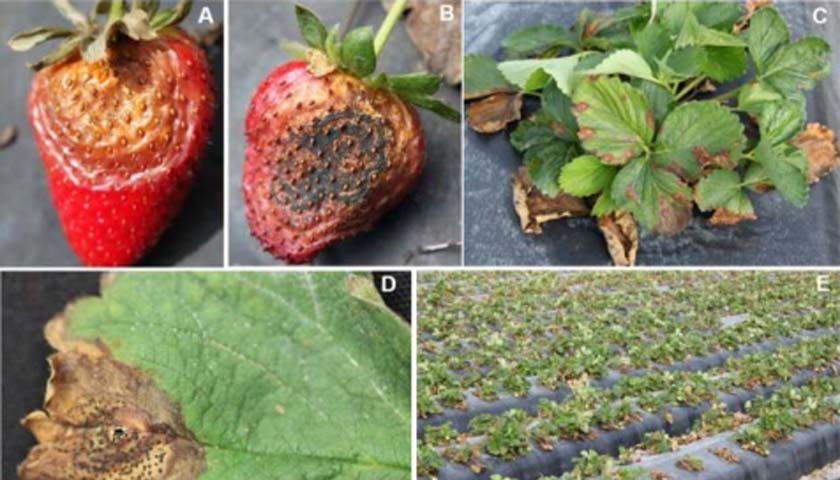
NC State Extension released its Strategic Plan for Strawberry
NC State Extension recently released its Pest Management Strategic Plan for Strawberries in the Southeast including Virginia, North Carolina, South Carolina, Georgia, and Florida, giving detailed information on common pests, weeds, pathogens, and best practices.

Potatoes - Common problems and our solutions.
Nematodes are a common pest in potato-growing areas, particularly in the Pacific Northwest. They are typically found in coarse-textured, sandy soils. Above ground symptoms can range from stunted growth and wilting under moisture stress, accompanied by distinct galls on potato tubers.
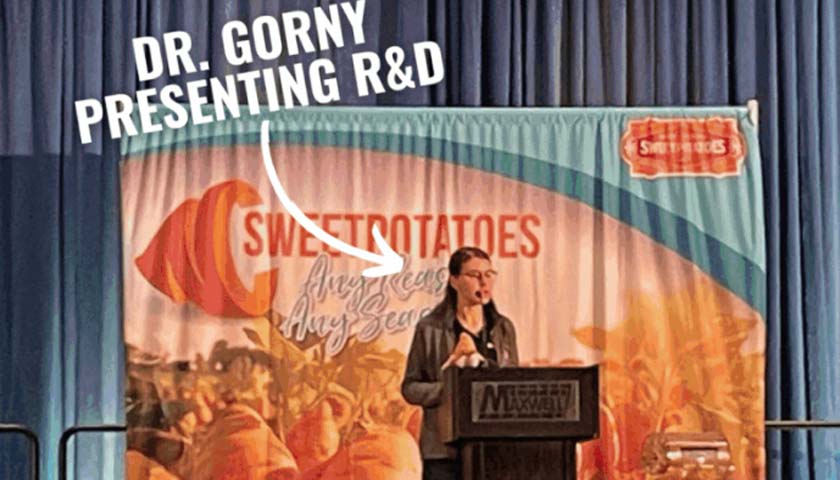
Teleos at the North Carolina Sweetpotato Commission
Teleos Ag is proud to be a member of the North Carolina Sweetpotato Commission and support their mission to increase sweetpotato production and consumption. NC farmers know that nematodes are a common pest one of the biggest sweetpotato-growing areas in the country.
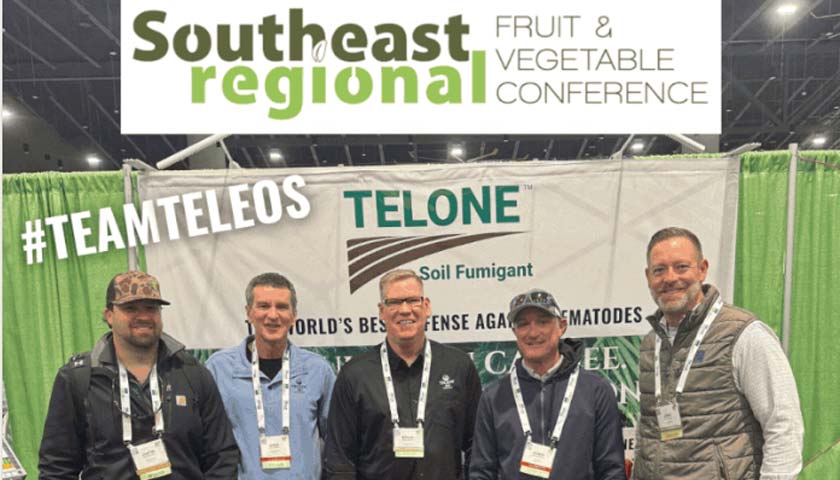
Teleos at the Southeast Regional Fruit & Vegetable Conference
Teleos was at the Southeast Regional Fruit & Vegetable Conference in Savannah, GA, last week with a full team onsite, including our Mid-Atlantic TELONE™ Specialist Greg Roberson, Southeast TELONE™ Specialist Chris Hays, Stewardship Manager Justin H., USA Sales Manager Bruce Jacobs, and our President John Godbehere.

Teleos Ag Posts "Managing Replant Problem & Nematodes" PDF
With the year coming to a close, now's the time to start thinking about your orchard replant! Before you get started, be sure to check out our "Managing Replant Problem & Nematodes" PDF, available for download on the link below

Trical Inc. fumigating Strawberry Fields fighting Nemotodes
Despite the overcast skies in Santa Maria, California, dedicated technicians are hard at work treating the strawberry fields to mitigate soil-borne diseases like nematodes. This proactive farmer is ensuring that the upcoming planting season will be both smooth and successful.

Trident Ag Products: Enhancing Soil Health with Chloropicrin Fumigants
Chloropicrin has been a trusted soil fumigation solution for over 60 years, helping specialty crop growers around the world maximize yields and maintain healthy soils. But what makes it such a powerful tool? Here’s a closer look at some of its benefits:
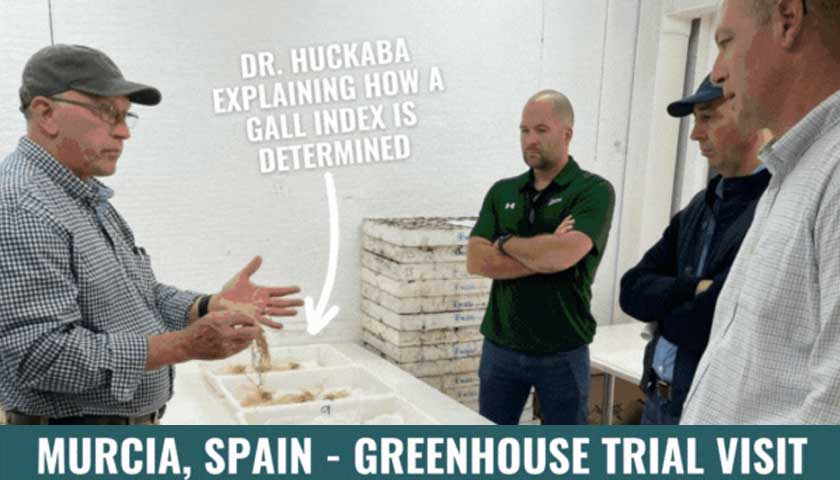
Teleos Visits Greenhouse Trials in Murcia, Spain
Teleos works with a company called Eurofins Métodos Servicios Agrícolas in Murcia, Spain. The Eurofins team is led by Miguel Angel Diez. Miguel showed us around his greenhouse facility where crop protection trials are currently underway, including trials with TELONE™ and Chloropicrin.
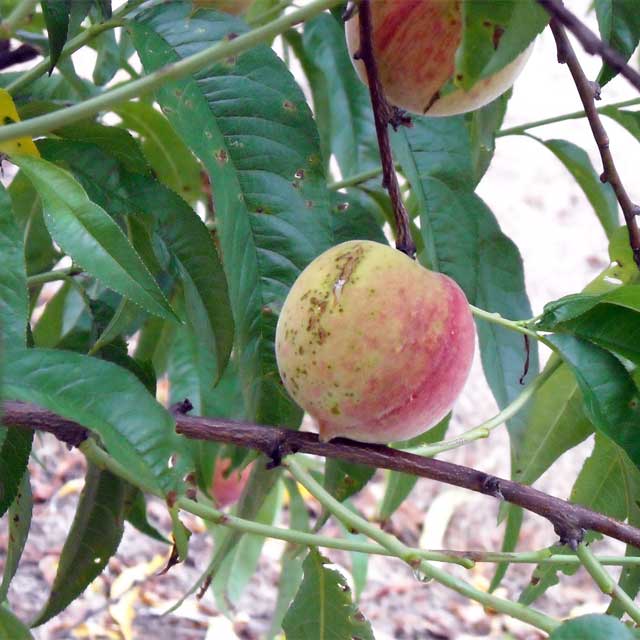
Growers in South Carolina are prepping their Peach Orchards now
Growers in South Carolina are prepping their peach orchards now, ahead of spring plantings in April. While growers do have nematode-resistant rootstock options, Root-Knot nematodes are still a huge threat for peaches in South Carolina.
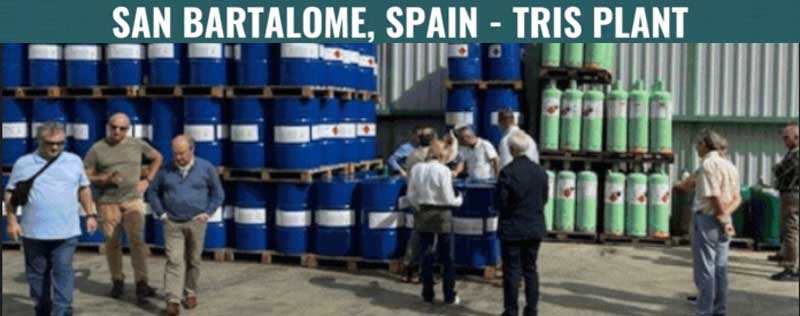
Team Teleos Travels Europe to TRIS Hispania
Teleos has been on the move! Recently, our EMEA Sales Manager JB Gibbs, President John Godbehere, Director of R&D Dr. Randy (RM) Huckaba, and Stewardship Manager Justin H. visited Europe to see our TELONE™ packaging facilities and check in on greenhouse trials.
New York Potato Trial Harvesting
Potato Harvest Trial Harvest digs in New York. Looking at Russets, Whites, and Yellows with multiple rates of chloropicrin against non-treated. We look at suppressing verticillium wilt, nematodes, & common scab. This is a fresh market grower so skin quality and size profiles matter.
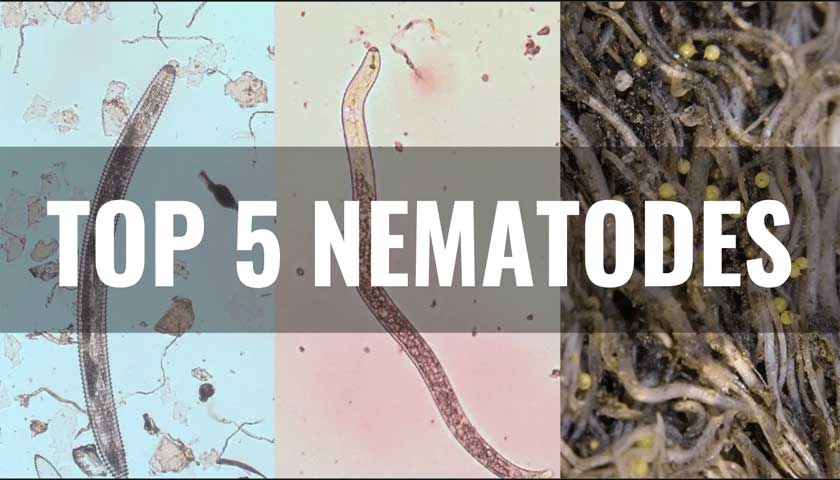
The 5 Most Common Plant-Parasitic Nematodes and How TELONE™ Can Help Protect Your Crops
Plant-parasitic nematodes are some of the most destructive pests in agriculture. With over 4,000 species of plant-parasitic nematodes worldwide, identifying and managing the right ones in your fields is crucial.
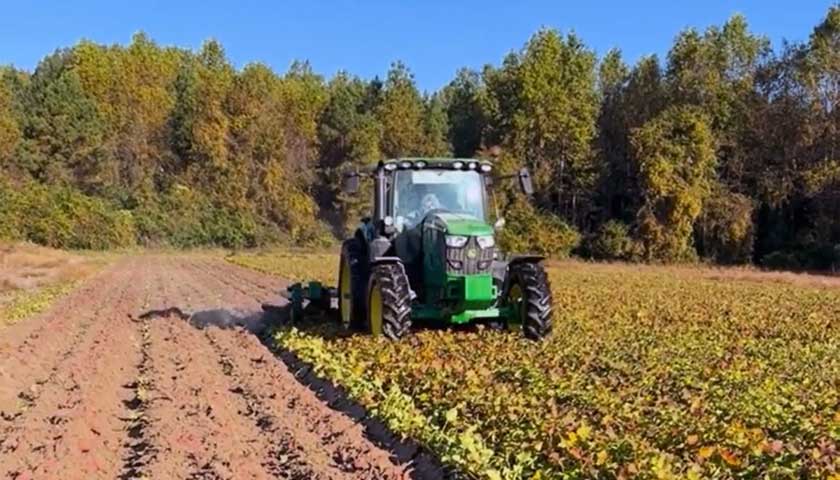
Sweetpotato harvesting in Eureka, North Carolina
Our Director of R&D Dr. Randy (RM) Huckaba was in Eureka, NC harvesting a sweetpotato experiment. The test treatments included TELONE™ II as well as TELONE™/Chloropicrin combinations. The results showed TELONE™ provided very good control of the devastating guava root-knot nematode.
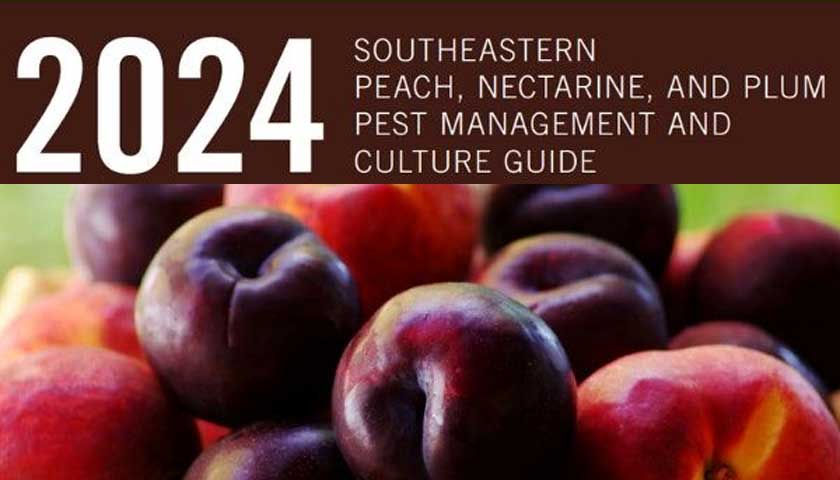
Southeastern Peach, Nectarine, and Plum Pest Management and Culture Guide
The University of Georgia Cooperative Extension compiled its 2024 Southeastern Peach, Nectarine, and Plum Pest Management and Culture Guide. The guide recommends TELONE™ applications "should generally be made in the fall prior to mid-November.

North Carolina Sweetpotato Commission's Annual Field Day
Our Mid-Atlantic TELONE™ Specialist Greg Roberson, was onsite at the North Carolina Sweetpotato Commission's Annual Field Day. This event is held in conjunction with North Carolina State University's Extension Program and is an excellent opportunity to connect with researchers and sweetpotato growers.

I Want To Be a Nematologist When I Grow Up
We recently had the chance to learn more about Dr. Kristi Sanchez’s path to becoming a Nematologist, and we can’t wait to share it with you. Explore her journey below, along with her valuable advice for anyone new to or interested in the field of Nematology.

Florida Tomato Institute's Annual Conference
TeamTeleos was at the Florida Tomato Institute's Annual Conference! Our Southeast TELONE™ Specialist Chris Hays, Stewardship Manager Justin H., and President John Godbehere were representing Teleos at this event and engaging first-hand with tomato growers from across the state.

Tobacco Research Field Day
Teleos Ag's mid-Atlantic TELONE™ Specialist Greg Roberson attended the NC State Tobacco Field Day last week in Kinston, NC. This was an excellent opportunity to interact with local tobacco growers, county extension agents, and researchers. Learn about how TELONE™ can set you up for a successful tobacco season.

Poland Potato Trials
Teleos Ag is currently running many field trials around the world, and recently, our EMEA Sales Manager JB Gibbs and our Director of R&D Dr. Randy (RM) Huckaba were in Europe checking in on several sites, like the pictured site where our team is visiting several sites in Poland to see the progress of ongoing trials in potatoes and carrots.
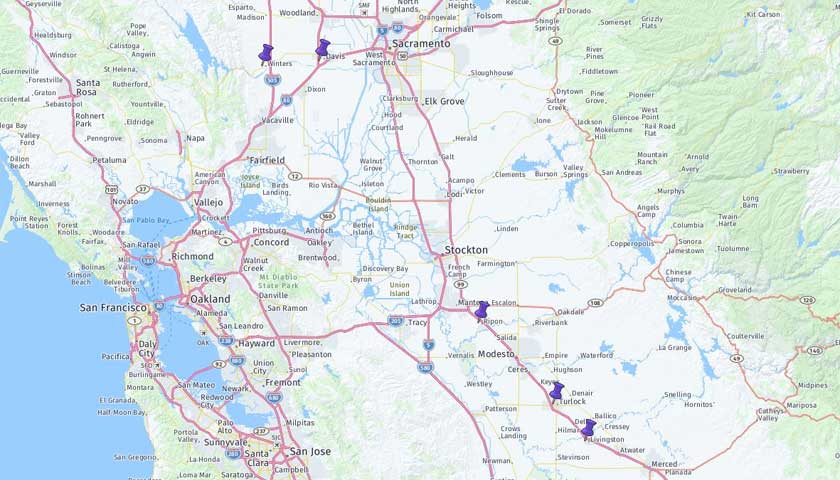
Where in the World is Dr. Kristi Sanchez?
May marked the start of Dr. Kristi Sanchez’s (our renowned Nematologist) busiest season, a kick-off to Spring field trials. Here’s a breakdown of the trial sites Dr. Sanchez visited, including detailed insights into her work and that of the TriCal team at each location.

TELONE™ USA R&D – Potato Field Trials 2024
Nematodes are a common pest in potato-growing areas, particularly in the Pacific Northwest. This blog post will cover common nematodes affecting potatoes in the Pacific Northwest, and recap a potato field trial that was done to demonstrate TELONE™ efficacy.
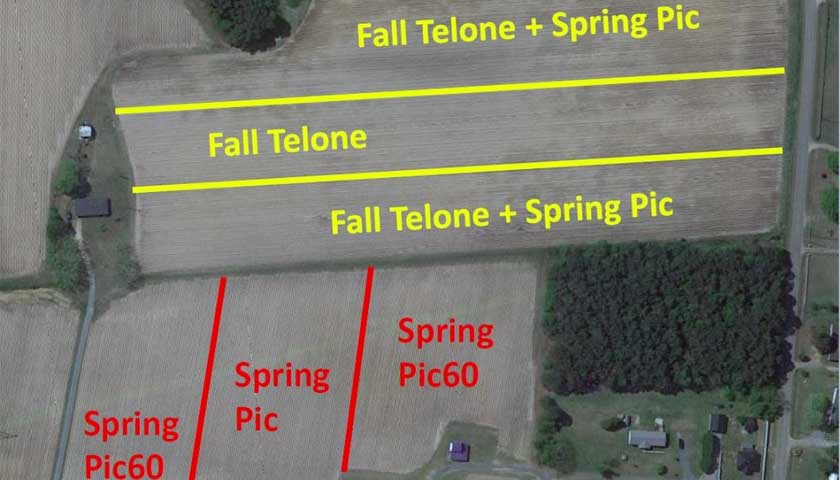
Impacts of Fall & Spring Fumigation of Tobacco
This project was established in East Central NC originally in 2021 to evaluate the effects of TELONE ™ II and Chloropicrin (PIC) on nematode suppression in Tobacco, Granville wilt suppression, and tobacco yield and quality. Is it possible to stagger harvest between the products?
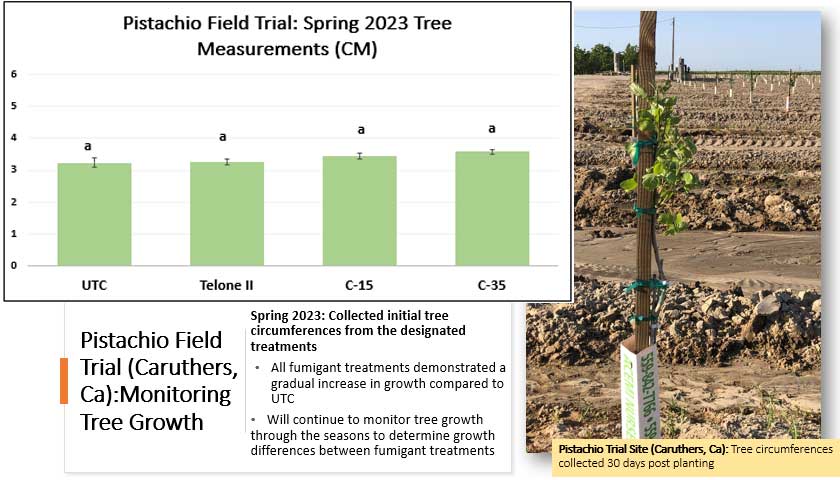
Pistachio Field Trials: Decreased Nematode Densities
We established 2 multi-year field trials in Fresno County California, one trial taking place in Firebaugh, and the other in Caruthers, both led by TriCal PCA-Victor Rodriguez to examine the benefits of TELONE™ and Chloropicrin providing early rootstock establishment..

Field Visit for Grape Trial in Modesto, Ca. with Dr. Kristi Sanchez
It was an honor to get invited by one of our Scientists, Dr. Kristi Sanchez. It was remarkable to see her in action out in the field, doing what she does best: helping diagnose nematode issues and providing support to growers throughout the Central Valley.
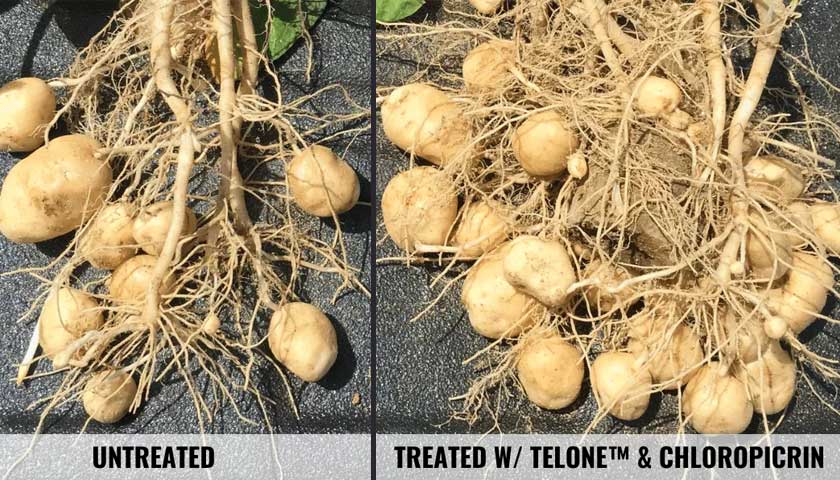
TELONE™ and Chloropicrin: A One-Two Punch for Nematodes and Soilborne Diseases
Agricultural diseases can decimate your crop if you don’t take the proper preventative steps. Nematodes and other soilborne diseases need to be stopped in their tracks—and the right soil fumigation techniques can make all the difference.

What Are Nematodes?
Nematodes are incredibly diverse, thread-like roundworms that live in a wide range of soils. Mostly microscopic in size, nematodes have varied methods of survival. A majority of nematodes are microbial feeders found in the soil. They can feed on diverse food sources, including bacteria, fungi, and even other nematodes!

Tree & Vine School Re-Cap
The first annual TriCal Group Tree and Vine School was a success. If you were able to attend the day of the event, Thursday – November 10th, we thank you! If you weren’t able to attend, then you can still check out all of the great speaker presentations.


